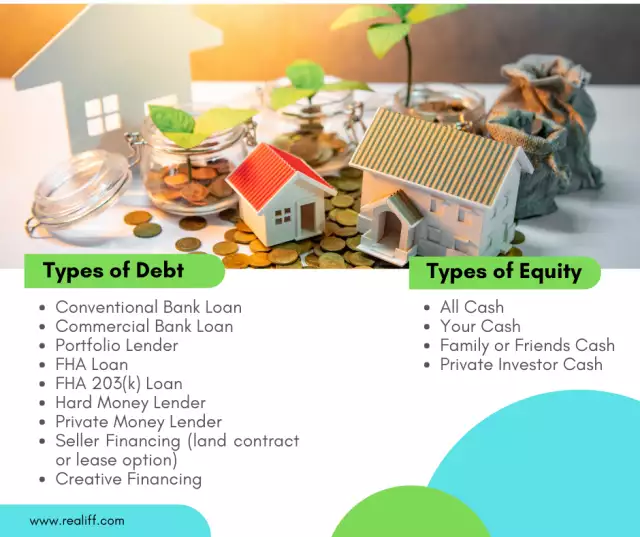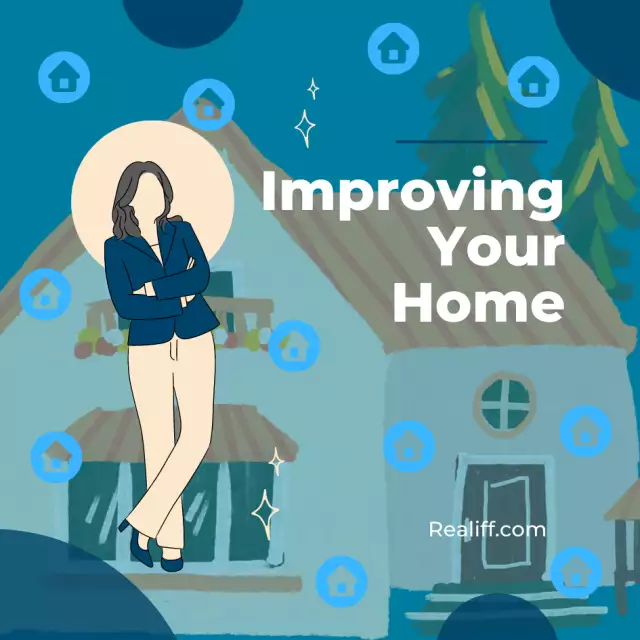Home Equity: Building, Using, and Managing Your Home's Value
Home Equity: Building, Using, and Managing Your Home's Value
Understanding Home Equity
Home equity refers to the portion of a property's value that the homeowner owns outright. In other words, it's the difference between the current market value of the home and the outstanding mortgage balance. For example, if a home is worth $500,000 and the outstanding mortgage balance is $300,000, the homeowner has $200,000 in home equity.
Several factors can determine home equity, such as the home's market value, the amount of the outstanding mortgage, and any liens or other debts secured by the property. Homeowners can calculate their home equity by subtracting their outstanding mortgage balance from the current market value of the home.
Home equity is important because it represents a valuable asset that homeowners can leverage for various purposes, such as home improvements, debt consolidation, or retirement income.
Building Home Equity
There are several ways that homeowners can increase their home equity. One strategy is to make additional payments towards the principal of the mortgage, which can reduce the outstanding balance and increase the portion of the home that the homeowner owns outright. Another option is to refinancethe mortgage to take advantage of lower interest ratesor to shorten the loan term.
Homeowners can also increase their home equity by making renovations or improvements that increase the home's value. For example, upgrading the kitchen or bathroom, adding a deck or patio, or installing energy-efficient features like solar panels can boost the home's value and equity.
Lastly, homeowners can protect their equity by keeping up with regular maintenance, such as repairing any damage promptly and keeping the home in good condition.
Using Home Equity
Homeowners can use their home equity in several ways, such as through home equity loans or lines of credit. Home equity loans are a one-time lump sum payment that homeowners can use for various purposes, such as home improvements or debt consolidation. The loan is secured by the property, and the interest rate is typically fixed.
Home equity lines of credit (HELOCs) are revolving credit lines that homeowners can draw from as needed. The interest rate is typically variable, and homeowners only pay interest on the amount they borrow.
Using home equity for various purposes can have benefits and drawbacks. For example, using home equity to make improvements that increase the home's value can be a wise investment, while using home equity for non-essential expenses, such as vacations or luxury purchases, can be risky.
It's important for homeowners to compare the costs and risks of using home equity to other borrowing options, such as personal loans or credit cards. Homeowners should also be aware of the risks of using their home as collateral, such as the possibility of foreclosure if they are unable to repay the loan.
Home Equity and Retirement
Home equity can also play a role in retirement planning. Homeowners can use their home equity to generate income in retirement, such as through a reverse mortgage or by downsizing to a smaller home and using the proceeds to fund their retirement.
However, using home equity in retirement also has risks and drawbacks. For example, taking out a reverse mortgage can reduce the amount of equity available to heirs, while downsizing to a smaller home may not be feasible or desirable for some retirees.
It's important for homeowners to carefully consider the risks and benefits of using home equity in retirement and to explore other options, such as annuities or investments, to supplement their retirement income.
| Topic | Summary |
| Definition | Home equity is the difference between a home's market value and outstanding mortgage balance. |
| Building equity | Equity can be built through paying down the mortgage, home value appreciation, and home improvements. |
| Using equity | Equity can be used for home improvements, debt consolidation, or retirement income through home equity loans or lines of credit. |
| Risks and considerations | Homeowners should be aware of the costs and risks associated with using home equity, choose projects that add value, and have a plan for repaying the loan. |
Here are some additional tips and considerations to keep in mind when it comes to home equity:
- Homeowners should regularly check their credit scores and review their mortgage statements to keep track of their outstanding balance and equity.
- When considering using home equity, homeowners should shop around and compare offers from different lenders to find the best terms and rates.
- Homeowners should be aware of the risks of using home equity for non-essential expenses and should have a plan in place for repaying the loan.
- When using home equity for home improvements or renovations, homeowners should choose projects that will increase the home's value and equity, rather than just cosmetic upgrades.
- Homeowners should consider working with a financial advisor or retirement planner to help them navigate the risks and benefits of using home equity in retirement.
FAQs
Q: How much home equity do I need to get a home equity loan?
A: The amount of home equity needed to qualify for a home equity loan varies by lender, but most require at least 20% equity in the home. Some lenders may require higher levels of equity or have additional eligibility criteria, such as a minimum credit score.
Q: Can I use home equity to pay off credit card debt?
A: Yes, using home equity to pay off high-interest debt, such as credit card debt, is a common use of home equity. However, homeowners should be aware of the risks and costs associated with using their home as collateral and should consider alternative options, such as personal loans or credit counseling.
Q: Can I lose my home if I can't repay a home equity loan?
A: Yes, if a homeowner is unable to repay a home equity loan or line of credit, the lender may foreclose on the property to recover their investment. It's important for homeowners to carefully consider the risks and costs of using their home as collateral and to have a plan in place for repaying the loan.
Q: Can I still qualify for a home equity loan if I have bad credit?
A: It may be more difficult to qualify for a home equity loan or line of credit with bad credit, as lenders typically consider credit history and score when evaluating loan applications. However, there may be lenders who specialize in working with borrowers with bad credit, and homeowners may be able to improve their chances of approval by offering additional collateral or providing a co-signer.
Q: What is a reverse mortgage, and how does it work?
A: A reverse mortgage is a type of loan available to homeowners aged 62 or older that allows them to convert a portion of their home equity into cash. The loan is repaid when the homeowner moves out of the home, sells the property, or passes away. Reverse mortgages can be a useful tool for generating retirement income, but homeowners should be aware of the costs and risks associated with this type of loan, such as higher fees and reduced equity available to heirs.
In summary, home equity is an important asset that homeowners can leverage for various purposes, such as home improvements, debt consolidation, or retirement income. Building home equity involves making additional mortgage payments, making improvements that increase the home's value, and protecting the equity through regular maintenance. Using home equity can be done through home equity loans or lines of credit, but homeowners should be aware of the costs and risks associated with using their home as collateral. Lastly, home equity can play a role in retirement planning, but homeowners should carefully consider the risks and benefits before making any decisions.






